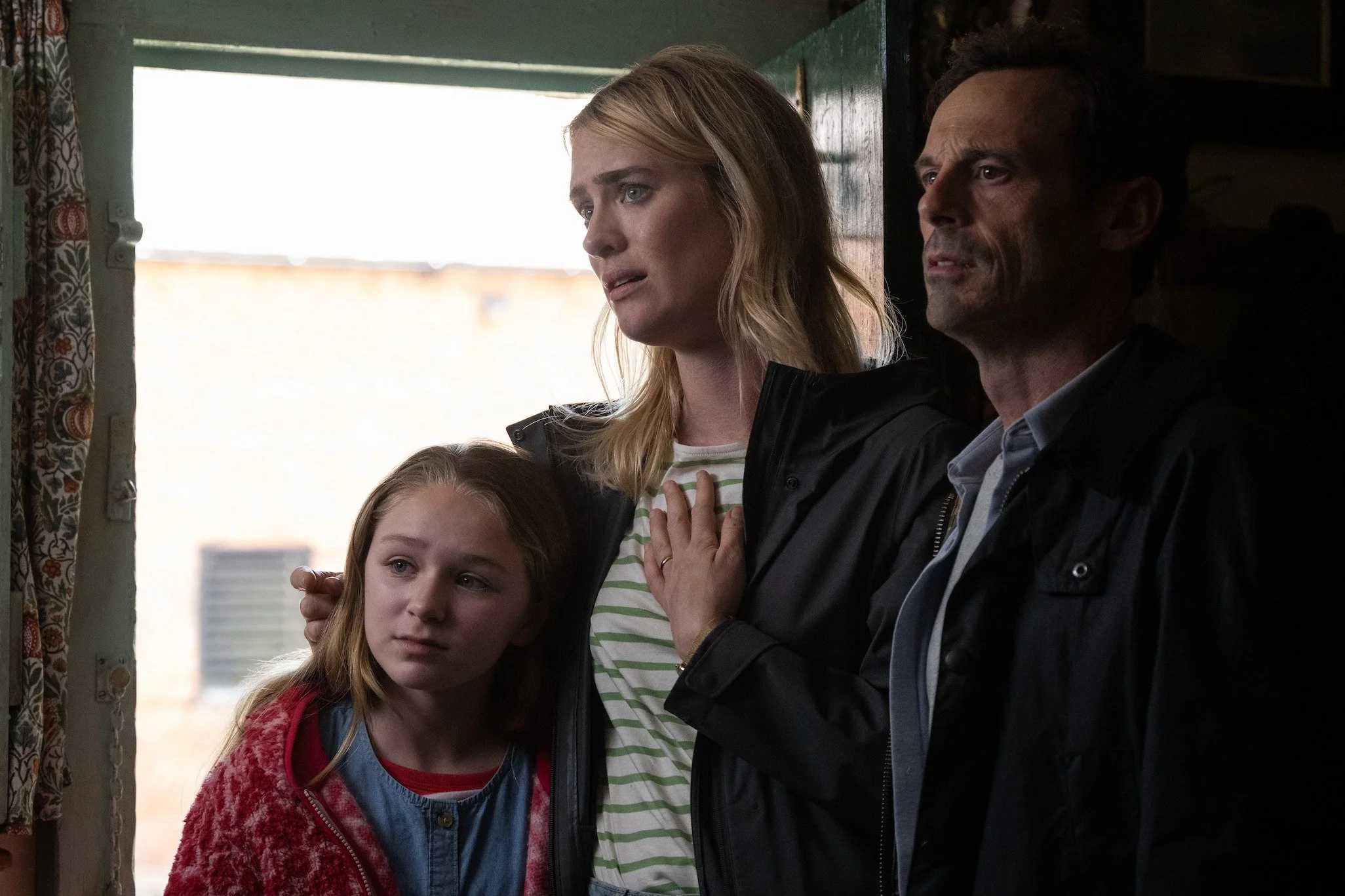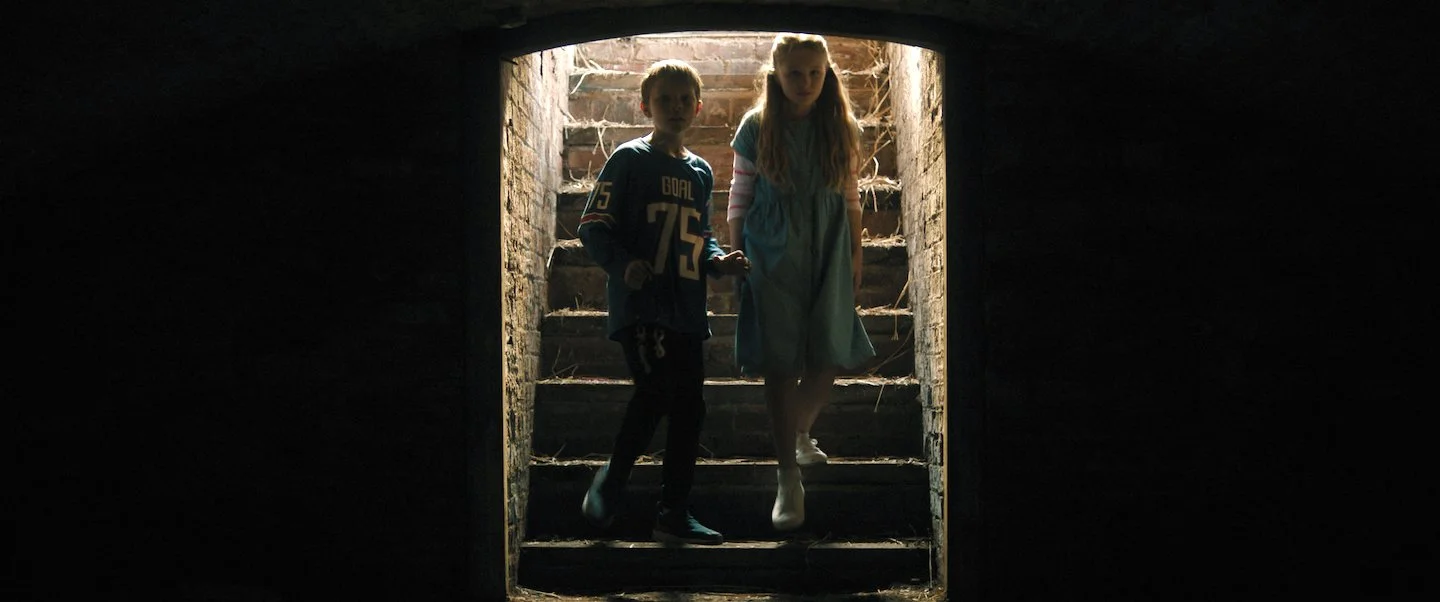You Don’t Say
Breaking news: You can remake a brainy European psychothriller as a standard, PG slasher-horror – if you have James McAvoy.
Speak No Evil
Director: James Watkins • Writer: James Watkins, based on the screenplay by Christian Tafdrup, Mads Tafdrup
Starring: James McAvoy, Mackenzie Davis, Scoot McNairy, Aisling Franciosi
USA • 1hr 50mins
Opens Hong Kong Sep 12 • IIB
Grade: B+
Anyone who survived the 2022 Danish psychothriller Speak No Evil by Christian Tafdrup is unlikely to think for a second that the American, Blumhouse remake would stay true to that unremittingly bleak source material. It’s truly a case of The Vanishing – George Sluizer’s Dutch mindfuck versus the Hollywood version, by George Sluizer – all over again. There are lines you don’t cross in Hollywood, and Tafdrup crossed most of them. So colour me shocked that British writer-director James Watkins has managed to sanitise the nastier, crueller elements of Tafdrup’s original, find room for dark, Blumhouse-style horror humour and still end on a grim note that the Danes would approve of.
That’s a considerable accomplishment. In the original film, an affluent, painfully correct Danish couple with buttoned-down and highly ordered lives, meets a more willy-nilly, spontaneous Dutch couple while on vacation in Italy. They hit it off, then the Dutch visit the Danes at their remote country house for a weekend and wind up dead in a ditch. Trust me, it’s way more twisted than that, and its’ also a slow burn indictment of social niceties and the need to keep the peace to the detriment of the self. It’s very serious and very European. Watkins swaps out the transnational couples for Americans and Brits, which has its own loaded connotations, ramps up the economic divide and takes his version of Speak No Evil into more traditional slasher territory by the end. But a lot of what leads up to it are deliciously and maliciously entertaining, thanks mostly to an all-in James McAvoy (I guess Gerard Butler was busy), riffing on his feral work in Filth and Split to maximum effect.
The Americans are Louise and Ben Dalton (Terminator: Dark Fate’s Mackenzie Davis and Scoot McNairy), an educated, wealthy couple with a daughter, Agnes (Alix West Lefler) afflicted with some kind of anxiety disorder. PR pro Louise indulges her like the yogababble mom she is. She’s pescatarian but can’t really defend her position. Louise is a textbook virtue signaller, and Ben is perhaps the year’s most ineffectual, bruised movie husband, recently downsized after relocating to London. Paddy and Ciara Feld (McAvoy and Aisling Franciosi, The Last Voyage of the Demeter) and their son Ant (Dan Hough) are the polar opposites of the Daltons. They’re carefree, sexy and clear in their identities. Ant has his own “condition” that prevents him from communicating easily, but they don’t coddle him (whoo, boy, understatement). Paddy, a doctor that gave up the rat race and dabbles with Médecins Sans Frontières, is as alpha male as Ben is not.
They meet on vacation in Italy and hit it off when Paddy’s fearless snark wins him points with the Daltons and Agnes and Ant make friends, which both kids desperately need. The Daltons finally accept an invitation to visit the Felds on their West Country farm, and that’s when things take a turn. The Felds aren’t quite as charming as they were in Italy (anyone who’s ever made “friends” on vacation will attest to that), and they’re harbouring a dark secret that puts the Daltons in mortal danger. Before the mortal danger, however, the families share a series of frightening, awkward or otherwise inappropriate encounters – many pivoting on Paddy’s brand of manly DGAF living, which Ben is seduced by – that inadvertently lead to Louise and Ben finally dealing with their fracturing relationship.
Where the Danish Speak No Evil was a satirical dissection of subjugation, social dynamics and middle class manners, the American version is more a dissection of 21st century masculinity and the collapse of the conventional marriage. It almost goes without saying that Watkins’s spin is less nuanced than Tafdrup’s; he cleaves closely to the Blumhouse model and jumps straight into PG horror convention in Act III after its sneakier, more clever opening acts. Louise and Ben’s badassery emerges a bit suddenly, but it’s tempered by some hilarious, entirely in-character, action, especially from Davis. Whether or not the sharp left into horror works is subjective. It’s Blumhouse. No one should be surprised a hatchet or household weaponry makes an appearance. Watkins’s comfort with horror convention is unsurprising, given his most prominent work to date has been his debut, Eden Lake, about a couple who run afoul of some surly (notably working class) kids while on vacation in rural England. Also unsurprising: Eden Lake’s downbeat ending hints at Watkins’s ending for Speak No Evil.
All that said, this is really McAvoy’s film, and zeroing on the little details, subtle gestures and expressions he deploys in creating Paddy is a delight. His seamless flip-flopping between menacing and charming, hulking and cuddly is truly rattling, and he singlehandedly infuses the whole affair with a sense of foreboding. Every time he quirks a smile at some random joke the Daltons never get it’s a portent that shit’s about to get real. Yes, Tafdrup’s film is probably better, but Watkins’s stands on its own as an entertainment – and it may just have the superior closing shot. Bonus: You’ll never hear “Eternal Flame” the same way ever again. Kudos. — DEK



